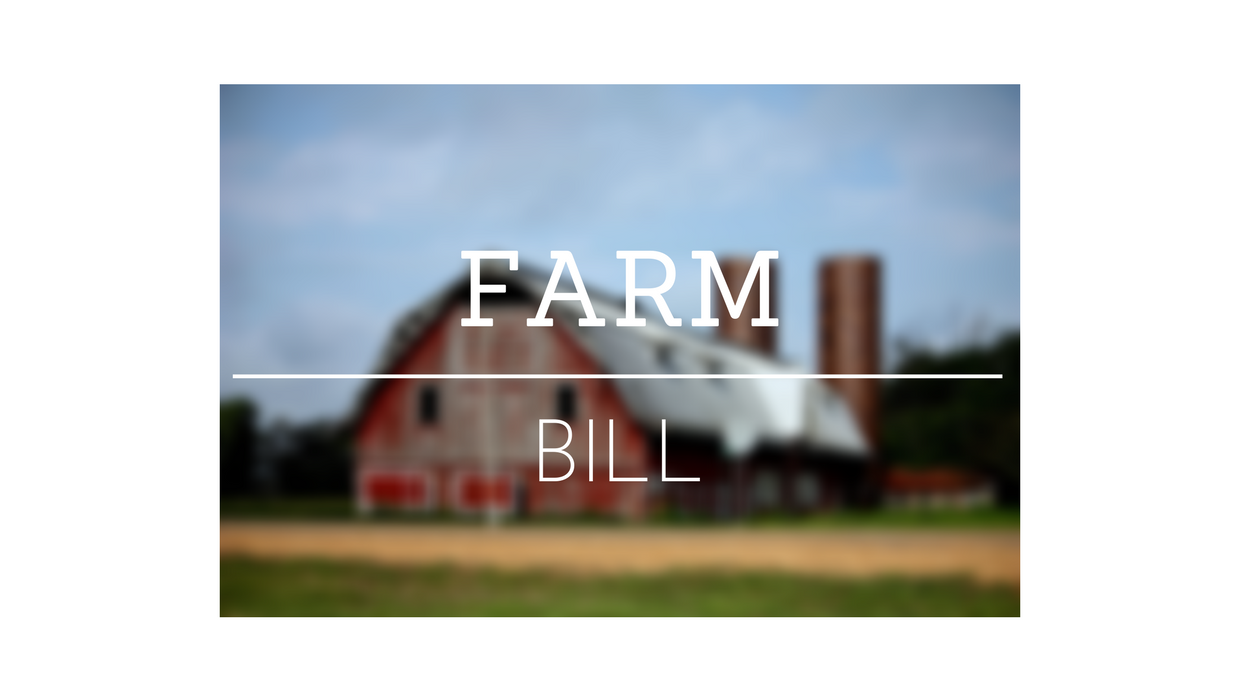Members of the Kansas Congressional delegation discussed the 2018 farm bill, the Trump administration’s trade policies and immigration reform issues during the Kansas Farm Bureau’s annual leadership breakfast held Sept. 8 at the Kansas State Fair in Hutchinson.
Senate Agriculture Committee Chairman Pat Roberts led off the session saying, “We’ve got to get a farm bill done. Time is running out. It’s my fervent hope we can get that. We can reach agreement and present that to the conference and not have any big fusses.”
In discussing the recent farm bill conference committee hearing, Roberts said, “Everybody sounded the same except for SNAP. That’s a real challenge for us to get done, but I appreciated all the talk about crop insurance. The paramount issue is to provide for every producer.
“We’re all struggling with farm income down and trade policy with a big question mark after it.”
Compromise needed
The way to a compromise House-Senate farm bill is pretty much the same as getting a bill out of the Senate, Roberts said.
“You take a look at what’s possible. You had 38 Republicans voted for the bill, 11 did not. You have to consider this as a bloc (with the Democrats).
“In the House, they’ve worked hard, but there are differences over SNAP. We both have the same goal, but I got to tell you, the Speaker called it welfare reform. That connotation, to the Senate, is just anathema. Let’s call it program integrity. If you use the right words and you work within the program you achieve the same goals.”
On trade policy, Roberts said the recently agreed to framework of a Mexico-United States trade agreement is a “pretty good” one.
“That’s the light at the end of the tunnel. To get it done before the next (Mexican) president comes on board is crucial,” Roberts said. “There’s a lot of talk of Mexican agricultural independence catching on, so we need to get this done as soon as possible. Canada is a tougher situation.
“We’re trying to work through those mitigation payments. I told Sonny Perdue that if he’s going to hand out $12 billion, he’d better justify it for trade retaliation, when it started and when it ended. After you do that, you’re going to get a complaint from every commodity group. We should be working on a more aggressive trade policy.”
Hope and belief
Sen. Jerry Moran, R-KS, discussed what he called the “the hope and belief” that what President Donald Trump is putting the nation through with a trade policy largely made up of tariffs is a negotiating tactic to get a better deal.
“I hope that’s right,” Moran said. “We earn a living in Kansas by what we sell around the globe. We produce more than we can consume, so the only way we can get a return on our investment is to make certain markets are open to us. We enter into trade agreements and then don’t seem to enforce them. We look the other way when other countries take advantage of us.
“It is a plea for Washington to recognize that my state, in the absence of those exports, our income is significantly diminished and our future of agriculture will not be what it should be without a resolution of this tariff battle. At the end of the day, and it needs to be a short day, these issues need to be resolved if we are going to have success in Kansas farming and ranching.”
Moran called for re-engagement in the Trans-Pacific Partnership and for a three-part NAFTA agreement.
“Incidentally, Canada was the No. 1 purchaser of items from Kansas. Mexico is the No. 1 purchaser of Kansas agricultural products. We need to re-engage on behalf of our cattlemen to make sure we have markets in Japan because we are at a duty disadvantage to Australia when we try to export beef to the Pacific,” Moran said.
“While I hope this is just a tactic, I hope it’s more than just ‘we raise tariffs, they raise tariffs. We raise tariffs more, they raise tariffs more.’ This is a defining consequence of how we make a living in Kansas. Once you lose these markets, how do you get them back? When you lose them, you’ll have to spend millions more to recapture them.”
This defining consequence, Moran said, is leading young persons and their parents to make the decision on whether or not the family farm can support them and their family, whether they can add to the payroll, while looking at the uncertainty of trade.
“I wonder if parents are going to say it may not be worth it for you to return to the farm right now. When we lose our sons and daughters to Overland Park and Prairie Village and Leawood and Olathe, how do we get them back 10 years from now?” Moran asked aloud.
“If I don’t tell everyone that we need to end this tariff battle in a positive way, I will have failed in my responsibilities of which I’ve told you I’m all about. How do keep rural Kansas alive? What we do has dramatic consequences on the nature of our state.”
Common goals in bills
Rep. Roger Marshall, R-KS, said 95 percent of the House and Senate farm bills are in common.
“My goal is getting this bill done on time. We need to hold accountable those who don’t want it done,” Marshall said. “With 80 percent of the farm bill going to nutrition we also need to hold people accountable.”
Marshall also said he thought Congress could pass an agriculture guess worker visa this year.
“I will keep pushing it. It will be a bipartisan effort,” Marshall said.
Larry Dreiling can be reached at 785-628-1117 or [email protected].

